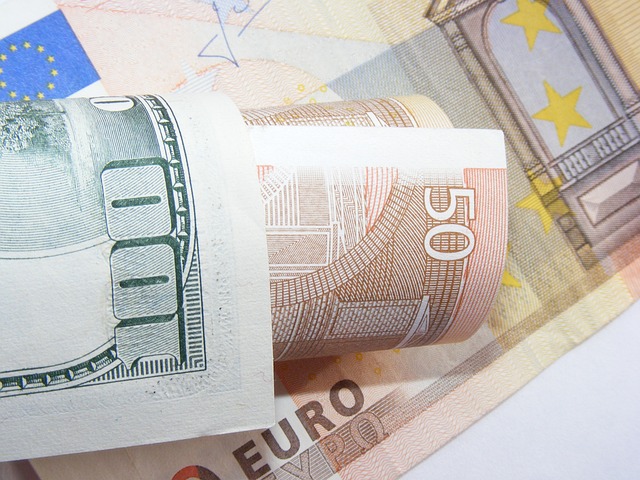Corporate Taxes in the Netherlands: Business-Friendly Policies

The Netherlands is renowned for its business-friendly environment, and its corporate tax policies play a significant role in attracting both domestic and international companies. With a competitive tax regime, a wide network of tax treaties, and various incentives for innovation and investment, the Netherlands offers a favorable climate for businesses. This article delves into the key aspects of corporate taxation in the Netherlands, highlighting the policies that make it an attractive destination for businesses.
Overview of Corporate Taxation in the Netherlands
Corporate Income Tax Rate
The Netherlands has a progressive corporate income tax rate structure, which is designed to support both small and large businesses.
- Standard Rate: For taxable profits exceeding €200,000, the corporate income tax rate is 25.8% (as of 2023).
- Reduced Rate: For taxable profits up to €200,000, a reduced rate of 19% applies. This lower rate is particularly beneficial for small and medium-sized enterprises (SMEs).
Taxable Base
The taxable base for corporate income tax includes worldwide profits for resident companies and Netherlands-sourced profits for non-resident companies. However, the Netherlands offers several exemptions and deductions to minimize the tax burden.
Key Features of Dutch Corporate Tax Policies
Participation Exemption
One of the most attractive features of the Dutch tax system is the participation exemption, which allows companies to exempt dividends and capital gains from qualifying subsidiaries from taxable income.
- Conditions: To qualify, the parent company must hold at least 5% of the shares in the subsidiary, and the subsidiary must not be a passive investment vehicle.
- Benefits: This exemption encourages cross-border investments and reduces the overall tax burden on multinational corporations.
Innovation Box Regime
The Netherlands offers a favorable tax regime for income derived from intellectual property (IP), known as the Innovation Box.
- Tax Rate: Income qualifying under the Innovation Box is taxed at an effective rate of 9%, significantly lower than the standard corporate tax rate.
- Eligibility: To qualify, the IP must result from R&D activities, and the taxpayer must hold the legal or economic ownership of the IP.
Interest Deduction Limitations
While the Netherlands allows companies to deduct interest expenses, there are certain limitations to prevent base erosion and profit shifting (BEPS).
- Earnings Stripping Rule: Interest deductions are limited to 30% of EBITDA (Earnings Before Interest, Taxes, Depreciation, and Amortization), with a threshold of €1 million.
- Anti-Abuse Provisions: Specific rules are in place to prevent abusive interest deduction practices, ensuring that the tax system remains fair and transparent.
Loss Relief
The Netherlands offers flexible loss relief provisions, allowing companies to carry forward losses for up to 6 years and carry back losses for 1 year.
- Carryforward: Losses can be offset against future profits, providing a cushion during financially challenging periods.
- Carryback: Losses can be offset against profits from the previous year, offering immediate tax relief.
International Tax Considerations
Extensive Tax Treaty Network
The Netherlands has one of the most extensive tax treaty networks in the world, with over 90 tax treaties in place. These treaties help to avoid double taxation and provide clarity on the tax treatment of cross-border transactions.
- Withholding Taxes: The Netherlands generally does not levy withholding taxes on dividends, interest, and royalties, making it an attractive location for holding companies.
- EU Directives: As a member of the European Union, the Netherlands benefits from various EU directives that facilitate cross-border trade and investment, such as the Parent-Subsidiary Directive and the Interest and Royalties Directive.
Holding Companies
The Netherlands is a popular location for holding companies due to its favorable tax policies and strategic position in Europe.
- No Capital Tax: There is no capital tax on the issuance or contribution of shares.
- Dividend Withholding Tax Exemption: Under certain conditions, dividends distributed by a Dutch holding company may be exempt from withholding tax.
Ruling Practice
The Dutch tax authorities offer an advance tax ruling practice, providing companies with certainty on the tax treatment of specific transactions or structures.
- Advance Pricing Agreements (APAs): Companies can obtain APAs to agree on transfer pricing arrangements in advance, reducing the risk of disputes.
- Advance Tax Rulings (ATRs): ATRs provide clarity on the tax implications of complex transactions, offering businesses greater predictability and stability.
Incentives for Innovation and Sustainability
WBSO (R&D Tax Incentive)
The Netherlands offers a tax incentive for research and development (R&D) activities, known as the WBSO (Wet Bevordering Speur- en Ontwikkelingswerk).
- Reduction in Wage Tax: Companies can receive a reduction in wage tax for employees engaged in R&D activities.
- Cost Deduction: A portion of R&D costs can be deducted from taxable income, providing additional financial support for innovation.
Energy Investment Allowance (EIA)
To promote sustainability, the Netherlands offers an Energy Investment Allowance for investments in energy-efficient technologies and renewable energy projects.
- Tax Deduction: Companies can deduct a percentage of their investment costs from taxable income, reducing the overall tax burden.
- Accelerated Depreciation: Investments in qualifying energy-efficient assets may also benefit from accelerated depreciation schedules.



